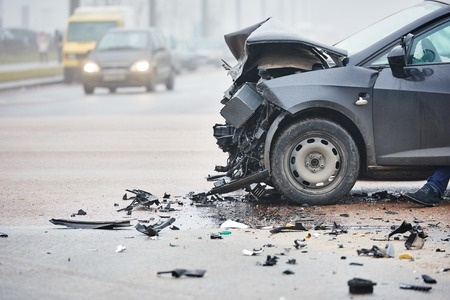
The National Highway Traffic Safety Administration reports that there is a fatal traffic collision somewhere in the United States every twelve minutes. That is, on average, 120 deaths a day, and even though no amount of money can replace a loved one killed in a traffic accident, wrongful death actions exist as a way for the law to help provide some kind of compensation to the family of people killed through the negligent acts of others—such as victims of traffic accidents. A wrongful death action is brought by either the executor of the deceased’s estate, or a person representing the family in the action to recover monetary compensation for several different categories of damages associated with their loss.
Economic Damages
Economic damages are tangible things that have a provable economic value that the surviving family can recover for by monetary compensation, such as:
- Medical expenses the victim incurred before they passed.
- The deceased’s funeral expenses.
- Loss of the deceased’s expected earnings.
- Loss of tangible benefits they had earned such as medical insurance and pension plans.
Other things that are similar in theory to these may also be compensable depending on the particular situations of the deceased and their surviving family if they can be proven and a value assigned to them. Less tangible things that the deceased provided to those they had a familial relationship with can also be recovered for in the courts in a wrongful death action, including things such as:
- Love
- Companionship
- Care
- Protection
- Guidance
With these sorts of things the court has to, by necessity, be somewhat flexible in how it assigns values, so there can be a great deal of variation between individual courts and judges as to how they will be handled and the amounts of compensation that will be assigned to them.
Proving a Wrongful Death Claim
There are three elements that must be shown in order for a person to bring a wrongful death claim. First, that a specific person or group is at fault in the event that caused the death. Second, that a spouse, child or children, dependent or dependents, or some other legally recognized beneficiary survived the victim. Third, that the death of the victim will cause a financial loss for the survivors. Any one of these three elements can be difficult to prove, depending on the particular circumstances of the case, and wrongful death claims will require a skilled and knowledgeable attorney with experience in personal injury litigation to successfully pursue the claim. Unlike other less serious personal injury cases, wrongful death claims tend to be extremely complex cases, and due to the potentially large amounts of money involved in them insurance companies are likely to defend them vigorously.
Time Limits in a Wrongful Death Claim
It is important to move quickly when a person is considering a wrongful death claim to make sure that it is not barred by the statute of limitations. In West Virginia wrongful death claims must be filed within two years of the incident that caused the death or else the survivors will be unable to bring the suit.
Colombo Law: West Virginia Wrongful Death Litigation Lawyers
If you have suffered the loss of a family member in an automobile accident or through other acts of negligence, it is important to contact an attorney as soon as possible. Contact the experienced legal team at Colombo Law today to set up a free consultation and let us show you how we can help you in your time of need.










